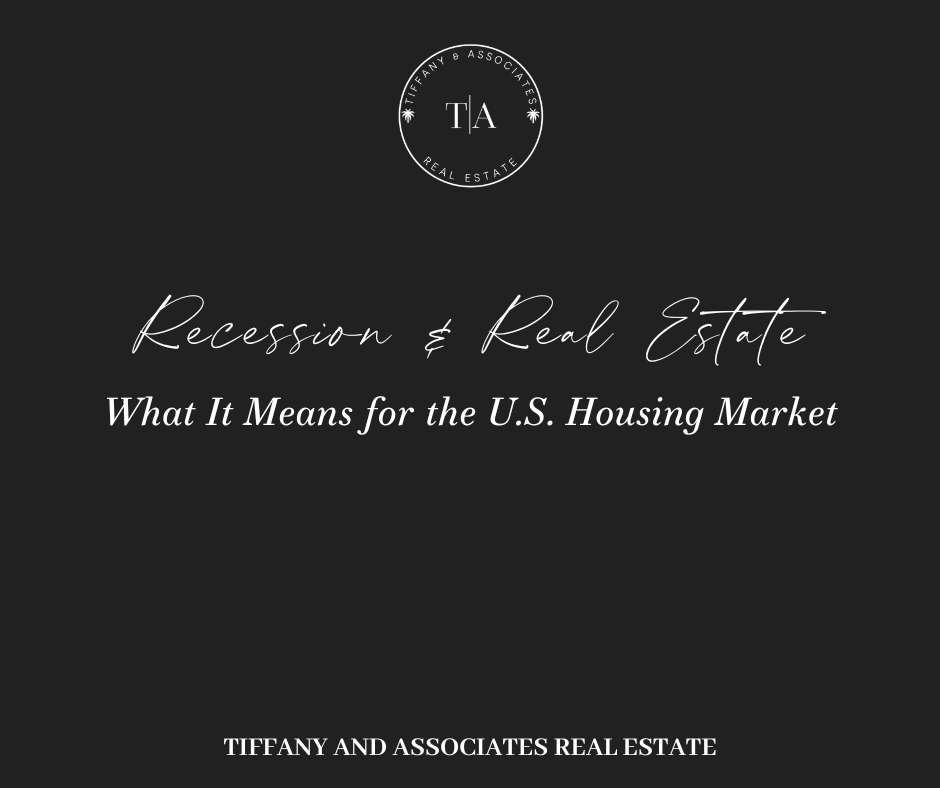Recession and Real Estate: What It Means for the U.S. Housing Market

The word "recession" often sparks concern, especially when it comes to major financial decisions like buying or selling a home. While economic downturns bring uncertainty, they also create opportunities. So, what exactly could a recession mean for the U.S. housing market? Let’s break it down.
Home Prices May Stabilize or Decline
Historically, recessions have led to slower home price growth and, in some cases, price declines. During a recession, consumer spending weakens, and demand for homes decreases. If fewer people are buying, sellers may lower prices to attract buyers. However, unlike the 2008 housing crash, a typical recession doesn’t necessarily mean a drastic drop in home values.
Mortgage Rates Could Fall
During economic downturns, the Federal Reserve often lowers interest rates to stimulate the economy. This can lead to lower mortgage rates, making homeownership more affordable for buyers who are still in a strong financial position. Lower rates can also encourage refinancing, helping homeowners reduce their monthly payments.
Housing Inventory Might Increase
With fewer buyers in the market, homes may stay on the market longer, leading to increased inventory. More supply could mean more negotiating power for buyers, potentially resulting in better deals. However, builders might slow new construction projects, limiting the number of new homes entering the market.
Tighter Lending Standards
During a recession, lenders often tighten their criteria for approving mortgages. Higher credit score requirements and larger down payments could make it more challenging for some buyers to qualify for a loan. This shift helps banks manage risk but can make homeownership less accessible for those with weaker financial profiles.
Rental Demand May Rise
If fewer people qualify for mortgages or if job losses impact affordability, rental demand may increase. This can drive up rent prices, making investing in rental properties potentially more attractive for those looking to capitalize on the changing market dynamics.
Opportunities for Investors
Recessions can create opportunities for real estate investors. With lower home prices, those with cash or financing options may be able to buy properties at a discount. Additionally, distressed properties, such as foreclosures, may become more available.
Conclusion
While a recession can bring challenges, it also offers potential advantages, depending on whether you're a buyer, seller, or investor. The key is to stay informed, evaluate personal financial stability, and work with real estate professionals to navigate the changing market conditions. Whether you're looking to buy a home, sell your property, or invest in real estate, understanding these trends can help you make smarter decisions in an uncertain economy.
Categories
Recent Posts











201 Anna Maria Blvd., Clemson, SC, 29631, United States
